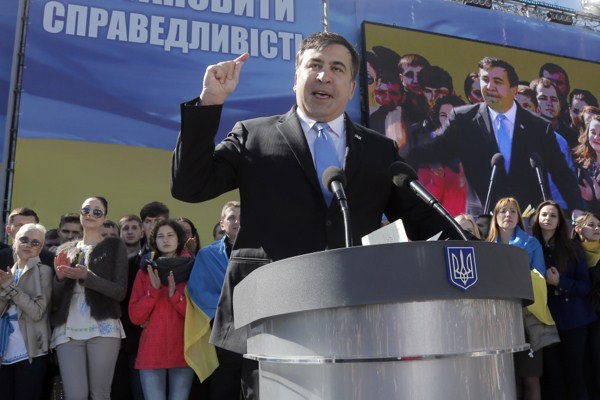Last month, Georgian prosecutors filed charges against former President Mikheil Saakashvili for misallocating public funds while in office. These were only the latest in a series of allegations against Saakashvili this summer, including the charges that the former president exceeded his authority in cracking down on a mass demonstration and ordering the police to raid a TV station in 2007.
Saakashvili—who in recent months has steered clear of Georgia—has accused the government, led by the Georgian Dream party that defeated his United National Movement at the polls in 2012, of political motives. The U.S. State Department has voiced concern over “the risk that politicized prosecutions would pose for Georgia’s democracy.” At the same time, Russian state media has gleefully promoted stories of Saakashvili’s alleged corruption. For both the U.S. and Russia, Saakashvili is no ordinary politician. His American education, frequent media denunciations of Russian President Vladimir Putin and highly controversial role in the 2008 Russo-Georgian War have all made him popular in Washington and despised in Moscow.
Allegations of corruption and human rights violations—including a major prison abuse scandal—dogged Saakashvili throughout his two briefly interrupted terms in office from 2004-2013. This period also saw Georgia significantly privatize its economy and pursue strong military ties with the U.S., including increasingly active participation in the Afghanistan and Iraq wars. The 2008 war—in which Georgia fired on Russian peacekeepers in the disputed enclaves of Abkhazia and South Ossetia, triggering a brief Russian invasion and the Kremlin’s recognition of those enclaves as independent countries—reflected Saakashvili’s misplaced confidence that the U.S. would come to Georgia’s aid. In retrospect, it looks like a test run for the ongoing war in Ukraine. Both wars demonstrate the risks facing any former Soviet republic that attempts to pursue integration with the European Union or NATO, as Russia’s determination to prevent this outcome has so far exceeded the West’s commitment to its potential partners.

